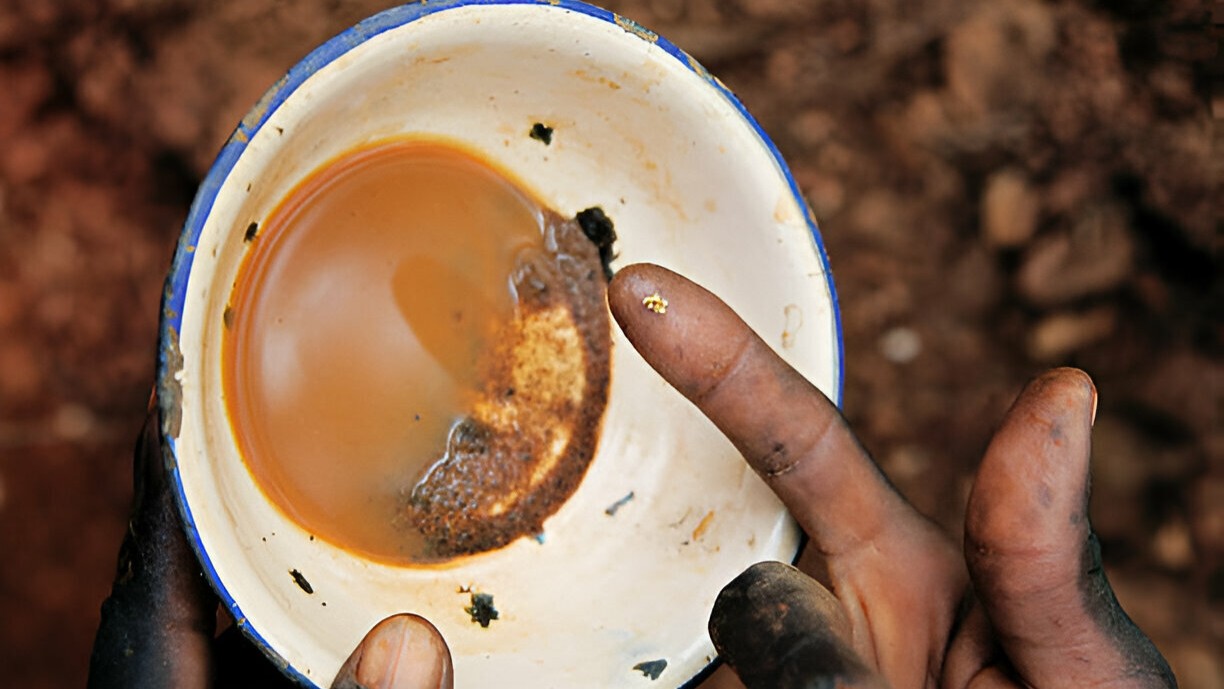South Sudan loses 5000kg of gold to UAE through Uganda annually


The report, titled “On the Trail of African Gold”, indicates that South Sudan’s gold sector is operating in the shadows, with no official statistics, weak state control, and links to illicit cross-border smuggling.
Examining gold production and trade across 54 African countries, the report highlights South Sudan as one of the continent’s least transparent nations in terms of artisanal and small-scale mining (ASM).
The study, which was conducted between 2021 and 2024, found that this gold often enters the UAE without formal export declarations from South Sudan, contributing to the $30.7 billion worth of gold smuggled from Africa in 2022 alone, with authorities in Juba either failing to provide data on gold production or confirming that no such figures exist.
“South Sudan belongs to a group of countries where artisanal and small-scale gold mining operates entirely outside state control,” the report states.
This lack of oversight, it notes, has created fertile ground for smuggling networks, with gold mined informally in South Sudan routinely smuggled into neighbouring Uganda, bypassing official export routes and depriving the young nation of vital revenue.
The findings come as South Sudan struggles to stabilise its economy and build institutions following years of civil conflict. Experts warn that the absence of formal regulation not only fuels corruption and organised crime but also undermines efforts to harness the country’s mineral wealth for development.
SWISSAID’s findings echo those of a 2021 study by the Global Initiative Against Transnational Organized Crime (GI-TOC), titled “Tarnished Hope: Crime and Corruption in South Sudan’s Gold Sector”, which documented how corrupt practices, limited government oversight, and transnational criminal networks have enabled the illegal extraction and trade of gold, often with the involvement of political and military elites.
The GI-TOC report highlighted that as of 2020, the country’s gold exports to the UAE through Uganda alone, totalled more than 3,000 kilograms and brought in US$110 million for the young nation, noting that this figure was only a fraction of what the industry is capable of digging up.
In February 2025, a businessman from the United Arab Emirates (UAE) allegedly smuggled 3.3 kilos of gold out of the country without proper government authorisation.
According to a letter from Prudential Holdings Co. Ltd, a registered mining company in South Sudan, its partner, Dr. Abdullah Alshabani, reportedly exported mineral-rich samples without following due process as mandated by the Mining Act of 2012.
The company’s chairman, Mr. Abraham Salva Mathok, wrote to the Ministry of Mining on February 12, 2025, requesting clarification on whether a No-Objection Letter had been issued for the export.
In response, the Ministry of Mining categorically denied issuing any such permit through the Director General of Minerals Development, Mr. James Yousif Kunda.
In a letter dated February 14, 2025, the ministry stated that Dr. Alshabani was not authorised and urged Prudential Holdings to obtain a copy of the alleged permit directly from him. The ministry further warned that the unauthorised export of mineral samples violates Section 47(4) of the Mining Act, which requires prior approval from the Director General.
In the regional context, South Sudan is part of a broader East and Central African network where gold from conflict-affected states such as the Democratic Republic of Congo, Central African Republic, and Sudan is smuggled into neighboring countries before being re-exported—often to the United Arab Emirates, one of the world’s top gold hubs.
SWISSAID notes that despite the scale of the problem, South Sudan remains off the radar of most international regulatory frameworks. The country is not a member of the Extractive Industries Transparency Initiative (EITI) and has yet to enact comprehensive legislation governing its mining sector.
The Swiss organisation urged African governments, including South Sudan, to increase transparency, enhance regulatory oversight, and formalise artisanal mining to stem revenue losses and protect the rights of miners.
sudanspost.com